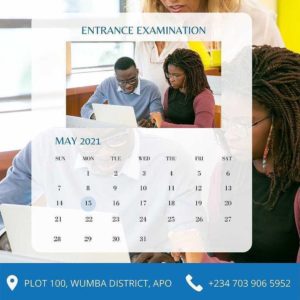Getting organized can help children with learning and cognitive disabilities. It may take some work at first, but it will pay off in the long term. Here are some suggestions for helping youngsters develop their organizational abilities at home, school, and elsewhere.
1. Tasks should be broken down into manageable pieces.
Assist children in breaking down school projects or domestic duties into smaller, more doable segments. This will demonstrate to them that each activity has a beginning, middle, and conclusion, making tasks feel less daunting. For example, if your child’s evening duty is to clear the table, explain to him or her: “First, scrape any food crumbs into the rubbish.” After that, put the dishes in the dishwasher. Then wipe the countertops clean.
2. Make to-do lists and checklists.
Once children understand all of the procedures required in a specific activity, assist them in adding it to an overall to-do list. Make a list of your normal schoolwork and tasks. Encourage children to put the list somewhere they will see it frequently and where they will be able to cross off their successes as they go. Some children may make their list with the help of a smartphone app. Others may use a dry-erase board in their bedroom or print out a list to carry with them throughout the day.
3. Teach them how to use a calendar and time management skills.
Encourage children to use a calendar to record essential tasks (digital or paper). Then assist them in estimating how long each job will take. After they finish a task, inquire whether or not the time estimate was correct. Make changes for the next time if necessary. It may also be beneficial for children to write the due date directly on school work.
4. Create everyday routines.
Creating a routine can help children understand what to expect throughout the day. Make use of visual schedules, clocks, and other time management techniques.
5. Idea organizers should be introduced.
Demonstrate how to arrange ideas for school projects using outlines, graphic organizers, or concept webs. Encourage them to write notes in two columns, one on the left for key concepts or questions and one on the right for all the specifics. Later, while they’re studying for an exam, they may review what’s in the narrow column to determine if they recall the main ideas and the specifics.
6. Make use of color coding.
Each educational subject should be assigned a color. Green folders and notebooks, for example, may be for English and blue for arithmetic. For items that need to be signed and returned, use brightly colored pocket folders. To assist kids transition from the position of writer to the role of self-checker and editor, suggest using various colored pens.
7. Make amusing memory aides.
Show students how to retain knowledge by making up their own humorous phrases, songs, acronyms, or cartoons. (A common mnemonic for remembering north, east, south, and west is “Never Eat Soggy Waffles.”) These memory enhancers may be used for everything from studying for an exam to remembering a locker combination.
8. Create a well-organized work environment.
Set aside areas at home where each youngster may focus on their task without being interrupted. It would be better if you keep this somewhere close to you in case they need your help. Keep educational supplies and technology like calculators, tablets, and laptops close to hand.
9. Audit your backpacks on a regular basis.
Because your child’s backpack serves as a vital link between home and school, it is critical that it be kept tidy. Schedule a weekly time for the youngsters to clean out and tidy their backpacks.
10. Assist children in planning ahead.
Sit down together before night to go through the day’s plans. This can help children feel more safe. You can plan how to manage things if there is a change in the schedule.
INTERNATIONAL FOUNDATION PROGRAMME
Level 3 International Foundation Diploma for Higher Education
The Level 3 International Foundation Diploma for Higher Education Studies is a nine-month, pre-university qualification accredited by NCC Education, a leading UK awarding organisation in IT and Business.
Many UK universities recognise the Level 3 International Diploma for Higher Education Studies as an entry qualification to BA, BSc or BEng degree courses. You can also apply to universities in the USA, Canada, Ireland and Australia.



